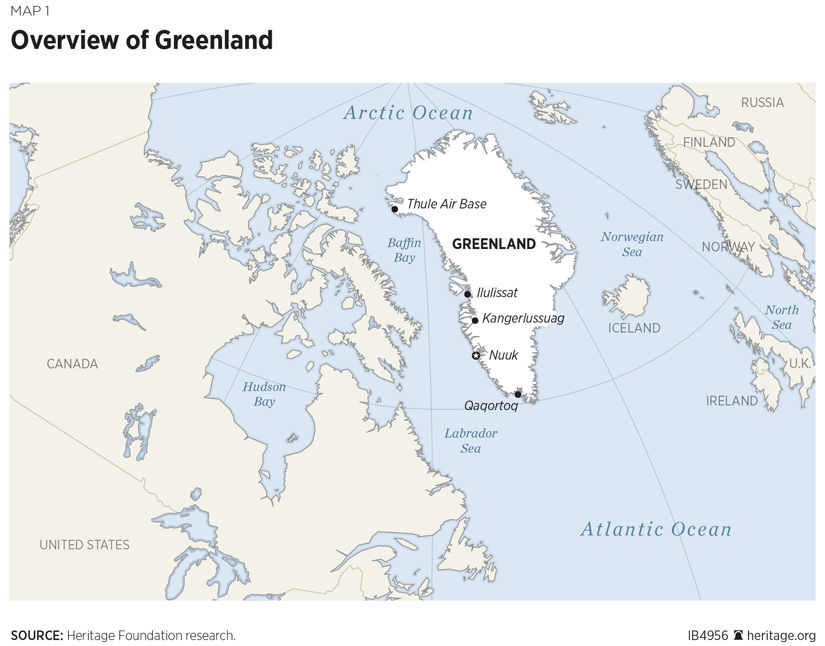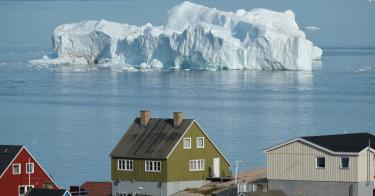President Donald Trump made international headlines when he recently mentioned his interest in purchasing Greenland. Taking advantage of the limelight, Greenland’s government tweeted, “We’re open for business, not for sale.”
As the news media looked for policy experts to analyze the situation, they turned to Heritage’s Luke Coffey. He’s been featured in stories from Voice of America, The Washington Examiner, AFP, The Federalist, and PJ Media.
Coffey directs Heritage’s Douglas and Sarah Allison Center for Foreign Policy. He’s also one of the only U.S. think tank scholars to have visited Greenland and written about its importance.
Greenland deserves all the attention that Trump is giving it, says Coffey.
“Not only is Greenland in North America, it is also in the United States’ backyard. Greenland does not receive attention from American policymakers in proportion to its security importance to the U.S.” Coffey wrote in a Heritage Foundation research report published in May.

Coffey’s report preceded U.S. Secretary of State Mike Pompeo’s visit to Greenland earlier this year. In the report, Coffey outlined how the U.S. can improve its relations with Greenland.
“Americans should not overlook Greenland’s importance to the territorial defense of the U.S. With new security, energy, and economic challenges and opportunities in the Arctic region, the U.S. needs a strong relationship with Greenland,” Coffey wrote.
Coffey advises that buying Greenland is not the answer. “The U.S. should open a consulate or consular agency in Greenland; a U.S. diplomatic presence would let the U.S. understand local political and economic dynamics.”
During his visit to Greenland in April, Coffey met with multiple government officials for policy briefings, including the deputy minister for foreign affairs, deputy chief of Joint Arctic Command, and officials of the ministries of Finance, Mineral Resources, Industry, Energy, and more.
“Everyone was very friendly. They have a very positive view of the United States. They have a very suspicious view of, let's say China, for example. And the U.S. has had an air base in Greenland, northern Greenland, since the end of World War II. … It's a very important airbase for the United States. And most of our bilateral engagement with Greenland is because of this airbase,” said Coffey in a Heritage Explains podcast interview.
